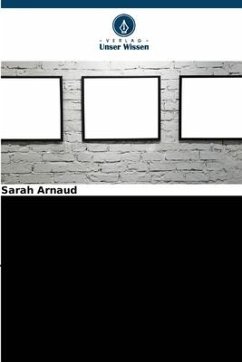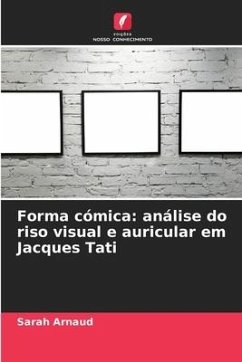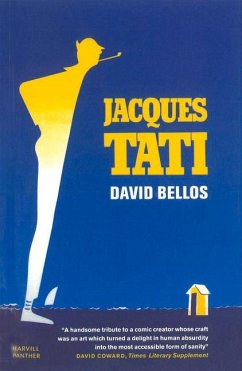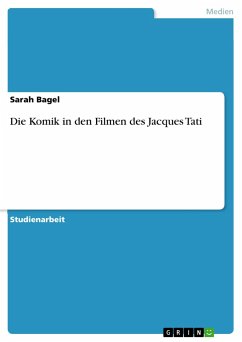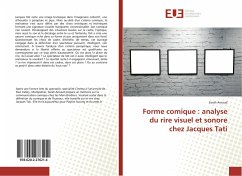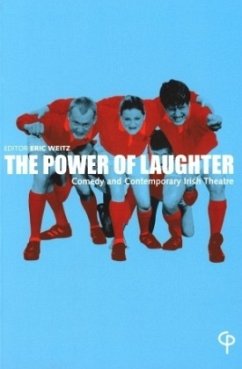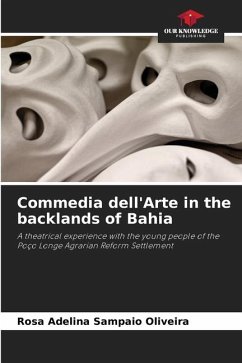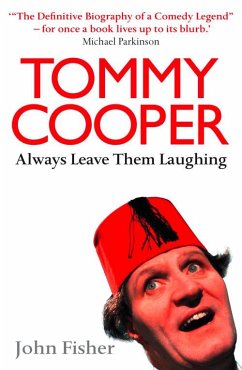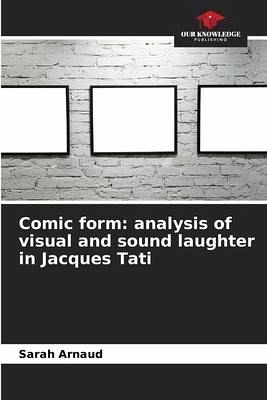
Comic form: analysis of visual and sound laughter in Jacques Tati
Versandkostenfrei!
Versandfertig in 6-10 Tagen
33,99 €
inkl. MwSt.

PAYBACK Punkte
17 °P sammeln!
Jacques Tati remains a burlesque image in the collective imagination, a figure with an umbrella and a pipe. But beyond a comical cinema, the director also defined himself by artistic and technical choices forming a striking visual signature, recognizable. His comedy can be seen in this. Developing situations based on the frame, the optics, but also the sound and the discrepancy between what is seen and what is heard, Tati created a rich comic work in its form and not only in its content. Questioning the choices of frame, scale, and time, this work engages in the definition of a powerful, intel...
Jacques Tati remains a burlesque image in the collective imagination, a figure with an umbrella and a pipe. But beyond a comical cinema, the director also defined himself by artistic and technical choices forming a striking visual signature, recognizable. His comedy can be seen in this. Developing situations based on the frame, the optics, but also the sound and the discrepancy between what is seen and what is heard, Tati created a rich comic work in its form and not only in its content. Questioning the choices of frame, scale, and time, this work engages in the definition of a powerful, intelligent, and even omniscient spectator. Through the analysis of a panoptic cinema, we ask ourselves if the freedom offered to the spectator is gratifying or constraining by this overflow of autonomy. Where is then the place of laughter, of letting go? Is the spectator of Tati as intelligent as the director would like? Does the result remain engaging, moving, funny? Does laughter flourish in these frames, in these shots? Or does it get lost in this "see everything" theory?



